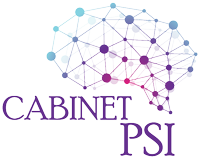
Discover TMS Therapy: An Alternative Approach to Dealing with Depression, OCD and Addiction
28 August 2023
Alcohol Addiction: The Road to Healing and Freedom – Medical Guide and Practical Advice
28 August 2023In the following we try to consider the use of psychiatric medication, antidepressants ,during pregnancy and breastfeeding, trying to balance the risks of therapy with the best course for the health and well-being of the future mother and her baby.
Of particular importance to a mother-to-be is the impact of untreated depression on fetal development. Maternal depression can:
- aggravate insomnia;
- decrease appetite for healthy eating;
- contribute to conditions such as nausea, vomiting or high blood pressure during pregnancy.
It has even been found that some symptoms of depression can also be experienced by babies, who may develop malformations, heart problems, premature birth and low birth weight if they have been exposed to maternal depression in the womb.
Some babies may tend to be more irritable and less empathetic, active and attentive than those born to mothers without depressive conditions.
*3-4% of pregnancies are associated with congenital malformations, and about 10% of newborns are premature.
*The risk of giving birth to a child with problems is never zero, whether or not medication is part of the equation.
Although the risk of birth defects and other complications in babies whose mothers have taken antidepressants is low, it should be noted that some drugs may be associated with a higher degree of risk to fetal development.
In general, it is recommended that pregnant women should avoid taking these drugs, especially in the first trimester or during breastfeeding.
There are situations where the use of medication must be balanced against the risk of not treating the psychiatric disorder or the risk of developing a discontinuation syndrome for both mother and foetus.
Hypnotics and Pregnancy/Pregnancy
Prescribing hypnotics should be a conscious decision, especially for pregnant women.
In the presence of insomnia, evaluation should be done to rule out possible depression or other psychiatric disorder that would require treatment.
Sleep hygiene should also be considered. If a hypnotic is required, Zolpidem or Zopiclone is preferred, but doses should be as low and short as possible.
Newborns of mothers who have taken sedatives or hypnotics during pregnancy may experience withdrawal symptoms and general weakness at birth.
Antidepressants and Pregnancy/Pregnancy
For patients on antidepressants who wish to become pregnant, it is important to consider the following issues:
- Advisability of pregnancy in the context of the psychiatric condition (risks related to imbalance, compatibility of treatment with pregnancy).
- Reassessment of the therapeutic regimen and, if necessary, adjustment of doses to maintain psycho-emotional balance or replacement with non-medication measures.
- Limiting the combination of psychotropic drugs in case of imminent pregnancy.
- Stopping antidepressant treatment during pregnancy is not always a recommended option. Abrupt discontinuation of therapy can lead to relapse of depression, with implications such as worsening mental state, inability to care for oneself and the pregnancy, and risk of developing postpartum depression or even postpartum psychosis.
During pregnancy:
- if the patient was already under psychotropic treatment at the time of pregnancy diagnosis, treatment should not be abruptly discontinued; the need and possibility of substitution with non-medication measures (cognitive-behavioural psychotherapy, psychological counselling) should be reassessed;
- minimum effective doses are preferred;
- avoid under-dosing which could affect the pregnancy.
- avoid multiple use of psychotropic drugs
Recommended antidepressants: SSRIs (fluoxetine, paroxetine (teratogenic risk), sertraline, citalopram, escitalopram), SNRIs (venlafaxine – first option, duloxetine – second option), ADTC (amitriptyline), mirtazapine.
- The effects of treatment on the foetus are compared with the risk of non-treatment, taking into account the benefits for mother and child.
- In breastfeeding:
- Recommended antidepressants: SSRIs :paroxetine, sertraline, escitalopram, fluoxetine.
- The amount of drug transferred into breast milk is reduced for these antidepressants.
These are just some of the key facts about the use of psychiatric medication during pregnancy and breastfeeding. Treatment decisions should be made in consultation with a specialist and taking into account the specifics of each case. The mother’s health and the baby’s well-being are paramount, and the choice of medication must be made carefully and in full knowledge of the facts.


